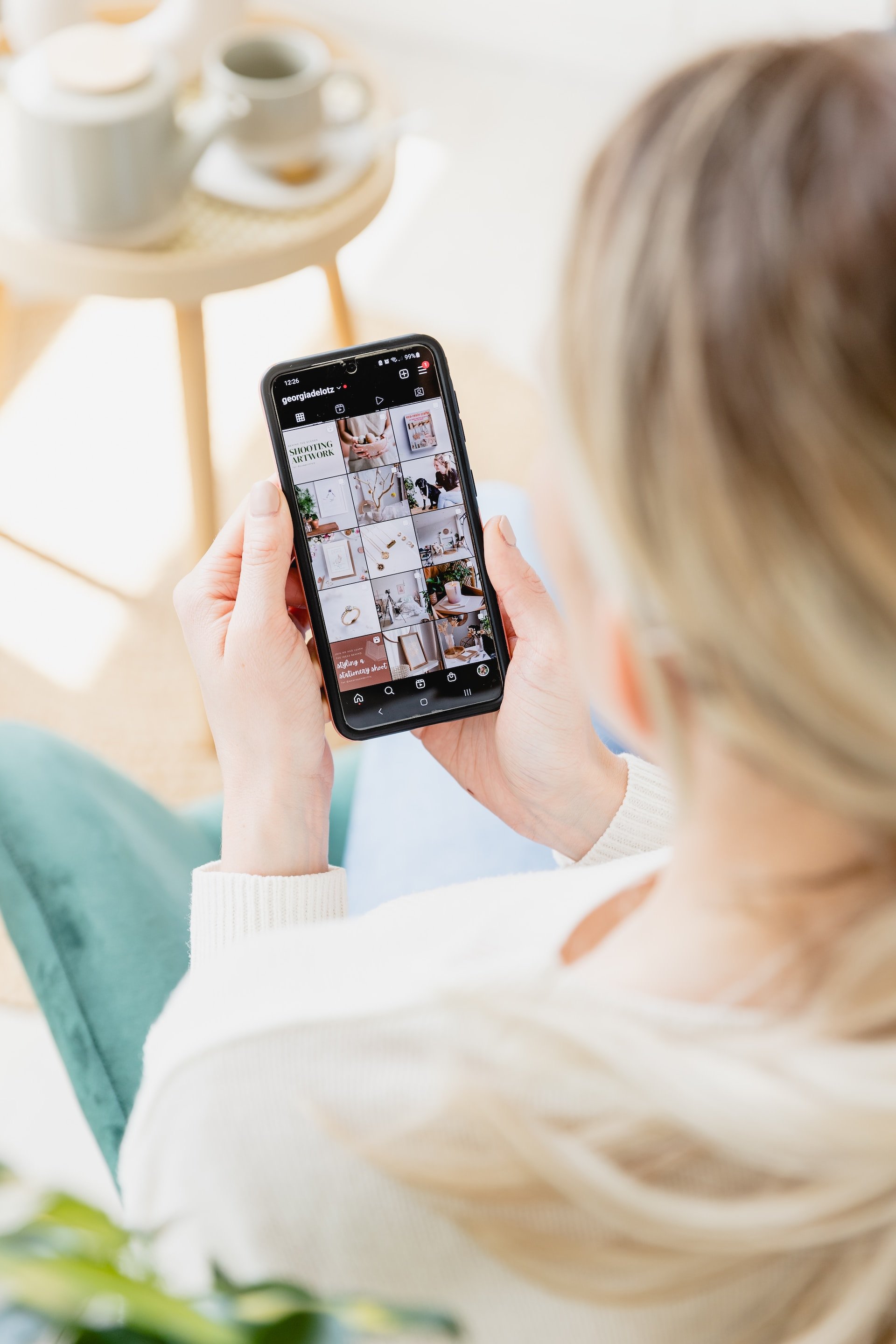Is social media a must?
Photo by Georgia de Lotz on Unsplash
Social media is a prominent feature of modern-day life. Wherever we go and whoever we speak with, some aspect always manages to weave itself into our daily routines and conversations. Whether we are posting or consuming content, it is a feature of life that plays a big role, and some might say the benefits are countless.
As well as keeping in touch with friends and family, we can read stories, admire beautiful photos, get a hold of mouth-watering recipes, swap life-hacks…the list goes on. We can benefit in so many ways from social media and all it has to offer. But there are downsides to the phenomenon as well - we can all spend too much time scrolling as our lives pass us by.
The downside of social media
We are all aware that although we enjoy some aspects of social media, it does have its disadvantages as well. I wonder if the main disadvantage is that it is addictive? By spending unhealthy amounts on Instagram or TikTok, are we missing out on life itself? Do we really need to live our lives through a camera lens or by glaring at a screen?
Allowing ourselves to spend so much time scrolling can negatively affect us in many ways. We can end up comparing ourselves to other people we see online. Even though we ‘know’ we are only seeing snapshots of their existence, that sinking feeling of comparison is hard to escape.
In my personal experience, the more time I spend on social media, the greater my fear of missing out, of becoming disconnected and of being lonely. But it begs the question: if we spent less time on digital relationships and invested more time into our day-to-day relationships would we feel as lonely?
Setting boundaries
So what if we set boundaries for ourselves? A set of rules to help us benefit from social media - even enjoy it - without feeling like we’ve wasted hours of our day gazing at our phone? It can be difficult to know where to start, and I can vouch for that. It might be a good idea to start small and build it up, so it soon becomes a habit. Here are some tried and tested ways we can start with
A good place to begin is to change the notification settings on the apps that you spend the most time on, so your phone doesn’t ping every time there’s a new update.
If that’s too big a leap, why not start by leaving your phone face-down so you can’t see a notification pop up every few minutes?
It’s never any harm to move the app icons off your homepage and pop them into a folder in the menu. It makes them harder to get to!
Decide what periods of the day you want to abstain from social media. Why not go a step further and activate “do not disturb” during these times?
If you’re goal-based, you might find it helpful to check your usage of the apps that you’re drawn to the most and then set a goal to reduce that usage.
If you’re really finding it hard to stick to your new boundaries, you can download an app that will restrict your time on those social media sites.
Why not keep your bedroom phone-free? Get yourself a digital alarm clock and leave the phone on the landing. It will help reduce your last-thing-at-night and first-thing-in-the-morning scrolling habits.
There are so many things we can do to help reduce our social media usage, and the benefits are astounding. Less distraction and less comparison for a start! It’s also worthwhile noting that if there are children or young teenagers at home who have access to the internet or social media, these boundaries can be set for all the family so you are all in it together and you can all benefit.
It’s all about moderation
We have all heard the phrase, “everything in moderation” It’s true: too much of anything isn’t good for you. By setting boundaries for ourselves on social media, we can create space for other things in life, which will hopefully lead to a more fulfilling existence. We can be more present and mindful of what is actually going on around us. As well as face-to-face relationships, our relationship with ourselves can improve as we spend more time looking at our lives objectively and not comparing ourselves to others.
We can sleep better if we have had a break from screens in the lead-up to bedtime. If we have more energy, we may be inclined to get outdoors or meet up with a friend instead of spending time on Facebook or SnapChat. The less we scroll, the less ads we see, the less late-night purchases we make, the more money we save!
As adults, we have a responsibility to educate the younger generations that social media, in all its advantages, isn’t actually the be-all and end-all. And, like most ways of educating our young people, setting an example is key. Setting a few boundaries and doing our best to stick to them means we can still reap the benefits of social media without it becoming a dominant factor in our lives.
